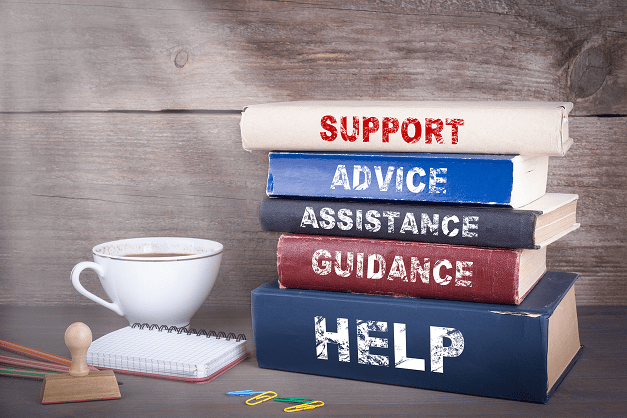by Ken Nopar, VP-Senior Philanthropic Advisor
Most donors who create donor advised fund (DAF) accounts know which charities they wish to support. Some, however, may not know or have not yet developed a charitable mission or strategy. Others may have established accounts largely because of the recommendation of their financial, tax, or legal advisors and have not yet begun to plan.
AEF has reached out to some of the leading philanthropic advisory firms in the country to ask for general advice they would provide to donors who have recently established DAF accounts at AEF. Their advice also applies to donors who have made many grants but are always looking for guidance, ideas, or inspiration.
Many of these firms and thought leaders have written longer columns for AEF donors that are included in AEF’s Library for Donors, but here are some of their brief thoughts for donors who are starting out or are revising their charitable giving plans:
Clients should “begin by discovering WHY they give, reflective of their own unique life journeys, values, and motivations for giving,” and “to determine HOW to best identify giving opportunities and desired impact.” Colleen D. Mitchell, VENTURE3Philanthropy LLC
“Just like a foundation, a donor advised fund is a powerful tool to engage the rising generations in their family in defining values, developing a Mission Statement and working together to achieve common philanthropic goals. Through grantmaking and impact investing, all of their philanthropically-committed capital can help achieve those goals.” Bruce DeBoskey, The DeBoskey Group
“Engage the organizations you support, even in small ways. You’d be surprised by how many nonprofits never hear from their donors. But great value – even beyond the financial gift – can be created by asking great questions and providing constructive feedback to the nonprofit that you care so much about. Like any organization, nonprofits do better through feedback and engagement with their best supporters.” Kyle Peterson, Boldly Go Philanthropy
“The first question the client needs to answer is what will be the intent of the gift. Will this be a one-time or multi-year gift, for a specific initiative or for general operating funds? The best gift to an organization is one accompanied by thoughtful and clear directives and expectations.” Susan Winer, Strategic Philanthropy, Ltd.
Seek an opportune time to bring everyone together at a family meeting to present the concept, and to hear about appetite for involvement (this may fall during a holiday season). This gathering is an opportunity for the senior generation to share its vision, and for the next generation to respond. Jeff Shaffer, JMC Philanthropic Advisors
“Being strategic about giving through their DAF doesn’t require a complex plan. In fact, complexity often gets in the way of impact. Instead, look for “next step” ways to build on gifts they’ve already made or find other donors or partners who can leverage their charitable investments.” Kris Putnam-Walkerly, Putnam Consulting Group
“What often begins as a tax driven decision can become a rewarding and meaningful philanthropic experience when it is guided by their personal values and interests. It helps when they take the time to ask themselves what they believe will make the world a better place.” Carolyn O’Brien, MissionBridge Philanthropy
“As families begin to consider, incorporate and engage the succeeding generations in their philanthropic process, there is an increasing need for several key things; clarity of purpose, creating opportunities to give individually and collectively, and building effective communication and collaboration across the family.” Rebecca Trobe, Impact Coaching & Consulting, LLC
“If clients are looking for a cause to support, they should reflect on what gives them joy or makes them angry. If looking for charities, they should research them like an investment. Effective charities can maximize the client’s gift by creating social impact within the community. ” Catherine Chapman, Fullanthropy
Mark Neithercut from Neithercut Philanthropic Advisors, LLC would advise clients to envision looking back in a year and ask “what happened during that period that would make them pleased with their philanthropic activity and grant-making from their donor-advised fund account?
It is helpful for donors to discuss their charitable planning goals with their financial advisors, accountants, and estate planning attorneys so they can receive the best possible investment, tax, and legal advice. For those donors who may need additional help with their charitable planning, AEF has developed a Philanthropic Advisory Firm Referral Program.
Some of the topics that families or individuals with donor advised funds should always discuss among themselves or with their advisors include:
Who is or will be involved in the charitable giving decisions?
What is the timeframe for giving? During lifetime, at death, after death, or for how many years or generations after death?
Which assets can or should be donated? Are there any other assets (i.e. real estate, insurance, IRA, businesses) that the donor does not need or want or intends to sell or possibly donate?
How much additional do the donors want to donate and at what point?
How should their financial advisor invest these charitable assets?
Which causes and charities do the donors want to support?
Donors who establish DAFs with AEF who take the time to plan, whether on their own or with the help of their trusted financial, legal, tax, or philanthropic advisors, develop an even higher sense of satisfaction, pride, and confidence knowing that their generous grants will have an impact upon the causes and charities that are most important to them.
Questions? Donors are welcome to contact the AEF Experience Team or the author at: kennopar@aefonline.org